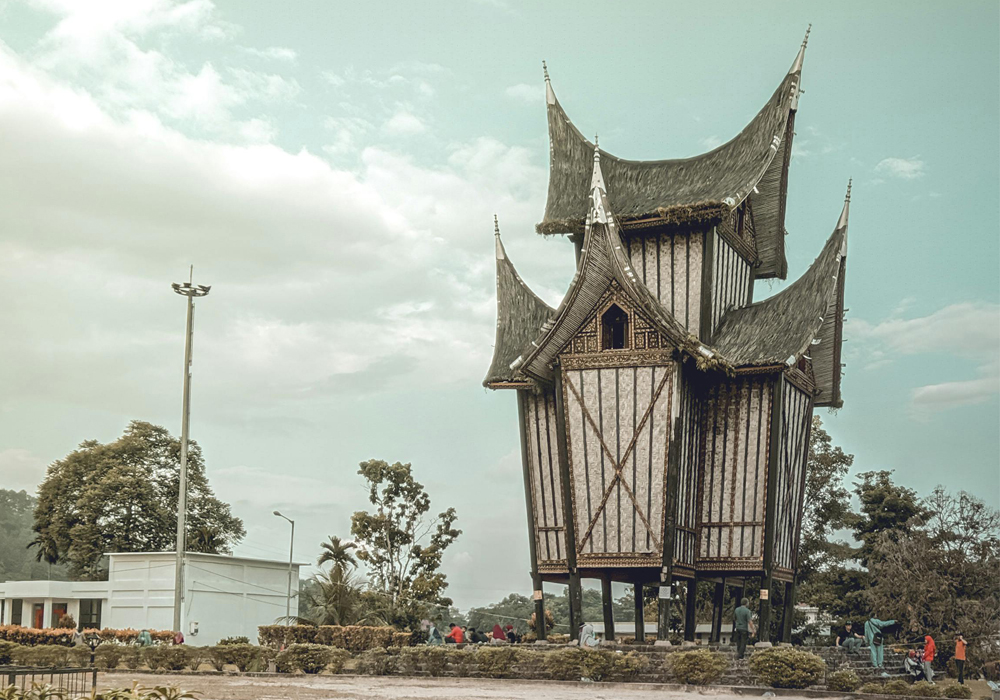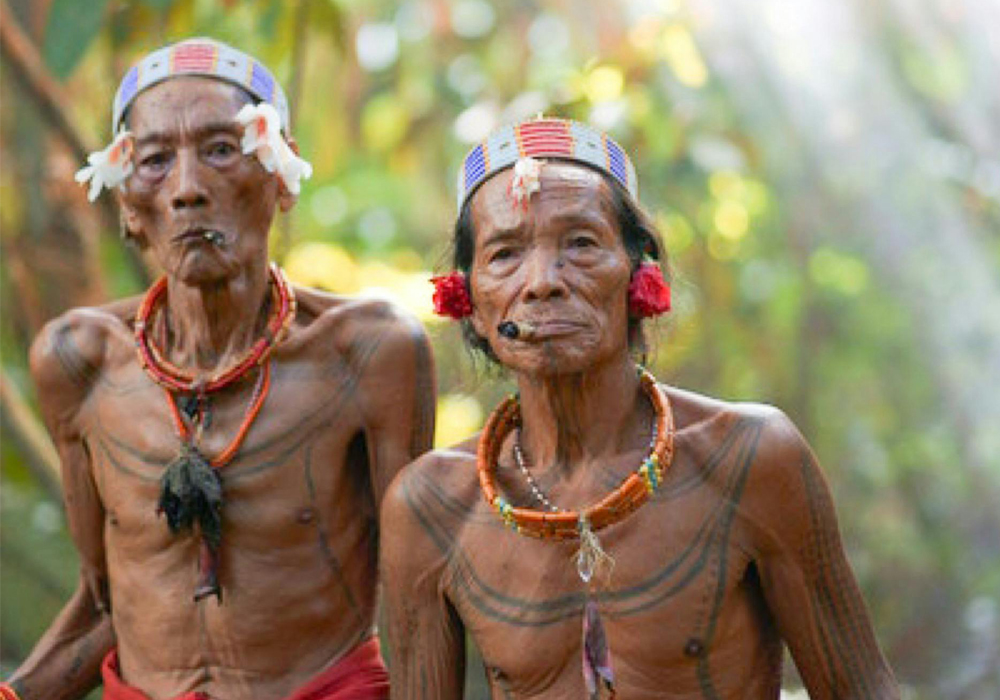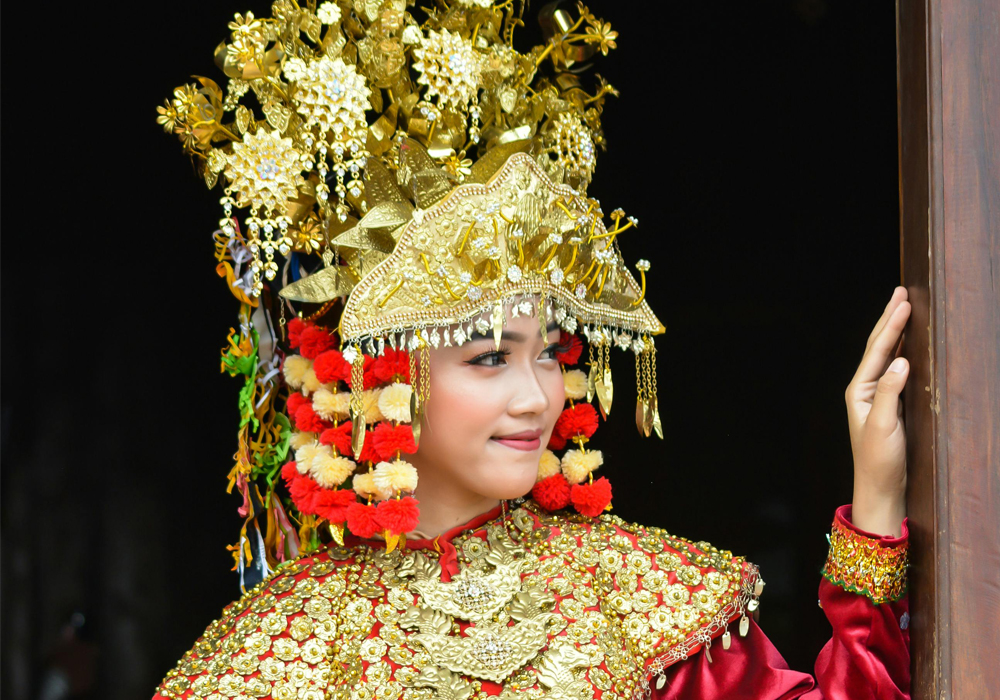Welcome to the wonderful world of Minangkabau, Indonesia, where the ladies aren’t just powerful; they’re practically running the whole show! If you thought “Happy Wife, Happy Life” was just a cute saying, for Minang men, it’s a foundational principle, possibly etched into their marriage certificates in glittering gold.
The Matriarch’s Manifesto: Central and Powerful? You Bet Your Ancestral Land!
In Minang culture, women aren’t just central; they’re the sun around which the entire family planet revolves. Imagine a game of Monopoly where all the prime real estate, the “harta pusako” (ancestral property), is permanently owned by the women. They are the custodians of the family home, the “rumah gadang,” a magnificent, horned structure that’s less a house and more a family fortress.
So, when a Minang man gets married, he doesn’t bring his bride home; he moves into her house. It’s like a permanent, very polite sleepover at the in-laws, except it’s his wife’s house. He’s essentially a very welcome, and very essential, guest. He provides for his family, sure, but his main address is determined by his wife. Talk about a power dynamic shift! He might still pop over to his sister’s for a bit of “man time,” but come nightfall, it’s back to the queen’s castle.

The “How-To” Guide for a Minang Man: From Bachelor to Beloved Boarder
The Minang marital system is less about “finding a soulmate” and more about “strategic family alliance” with a healthy dose of elaborate ceremony.
- The Spy Mission (Maresek): Forget swiping right on Tinder. In Minangkabau, the bride’s family sends out the equivalent of a highly trained reconnaissance team to “spy” on potential grooms. They’re checking his manners, his family background, his ability to not trip over his own feet – essentially, “Is this man suitable to be a very respectful inhabitant of our daughter’s home?”
- The Big Ask (Maminang / Batimbang Tando): If the intel is good, the woman’s family makes the proposal. Yes, you read that right. No bended knee from the guy here! If all goes well, there’s an exchange of symbolic goodies, like heirloom jewelry. It’s less a ring and more a “here’s a very old bracelet to prove we’re serious about letting you move in.”
- Operation: Groom Retrieval (Manjapuik Marapulai): This is the pièce de résistance. The bride’s family doesn’t just invite the groom; they ceremonially fetch him. Picture a grand procession, perhaps with traditional music, where the groom is literally escorted from his maternal home to his new abode. It’s a bit like being crowned king, but instead of a throne, you get a new bedroom (in your wife’s house). He’s also given a spiffy new title, a formal recognition of his elevated status – from “single dude” to “respected (and now resident) husband.”
Marital Matchmaking: Keeping the “Fish in the Pond” (Literally!)
Minang marriage isn’t just about love; it’s about lineage. The “ideal” marriage is often with a close relative, specifically a maternal cousin (your mother’s brother’s son). This isn’t for creepy reasons; it’s to “keep the fish in the pond” – meaning, keeping family wealth and property within the clan. It’s like a family business, but the “business” is the family itself!
However, there’s one golden rule: no marrying within your own clan (suku)! That’s a huge no-no. It’s considered incestuous, as everyone in your clan is basically family. So, while you can marry your cousin, make sure they’re not from your suku. It’s a fine line, but the Minang know where to draw it.
Islam and Adat: A Heavenly Blend with a Matriarchal Twist
Minangkabau society is a beautiful fusion of deep Islamic faith and their ancient adat (customary law). This means weddings have both the solemn akad nikah (Islamic marriage contract) performed by a Kadi (religious official) and a whole host of vibrant adat ceremonies.
While Islam often has a patriarchal slant in terms of inheritance, the Minang have brilliantly navigated this. Adat ensures ancestral land stays with the women, while Islamic law might govern other forms of property. It’s a delicate dance, but one they’ve perfected over centuries, proving that you can have strong faith and even stronger women in charge.

The Modern Minang: From Traditional Tales to Tech-Savvy Tendencies
Even the most entrenched traditions evolve, and Minangkabau society is no exception. With more education and urbanization, some of the elaborate adat ceremonies might be streamlined, and young couples might have a bit more say in choosing their partners. The “spy mission” might now involve a quick scroll through social media rather than a discrete family visit.
While the core of the matrilineal system remains steadfast – women are still the landlords and the lineage bearers – the role of the husband is also subtly shifting. He’s still a valued resident, but modern times often see him taking on more direct responsibility and authority within his immediate nuclear family, not just as a provider but as a more active co-pilot (albeit in his wife’s plane).
So, next time you think about marital dynamics, spare a thought for the Minangkabau. It’s a place where the women rule, the men are respected, and tradition and modernity dance a fascinating jig. It’s a refreshing reminder that there’s more than one way to run a happy, prosperous family – especially when the queen owns the castle!
